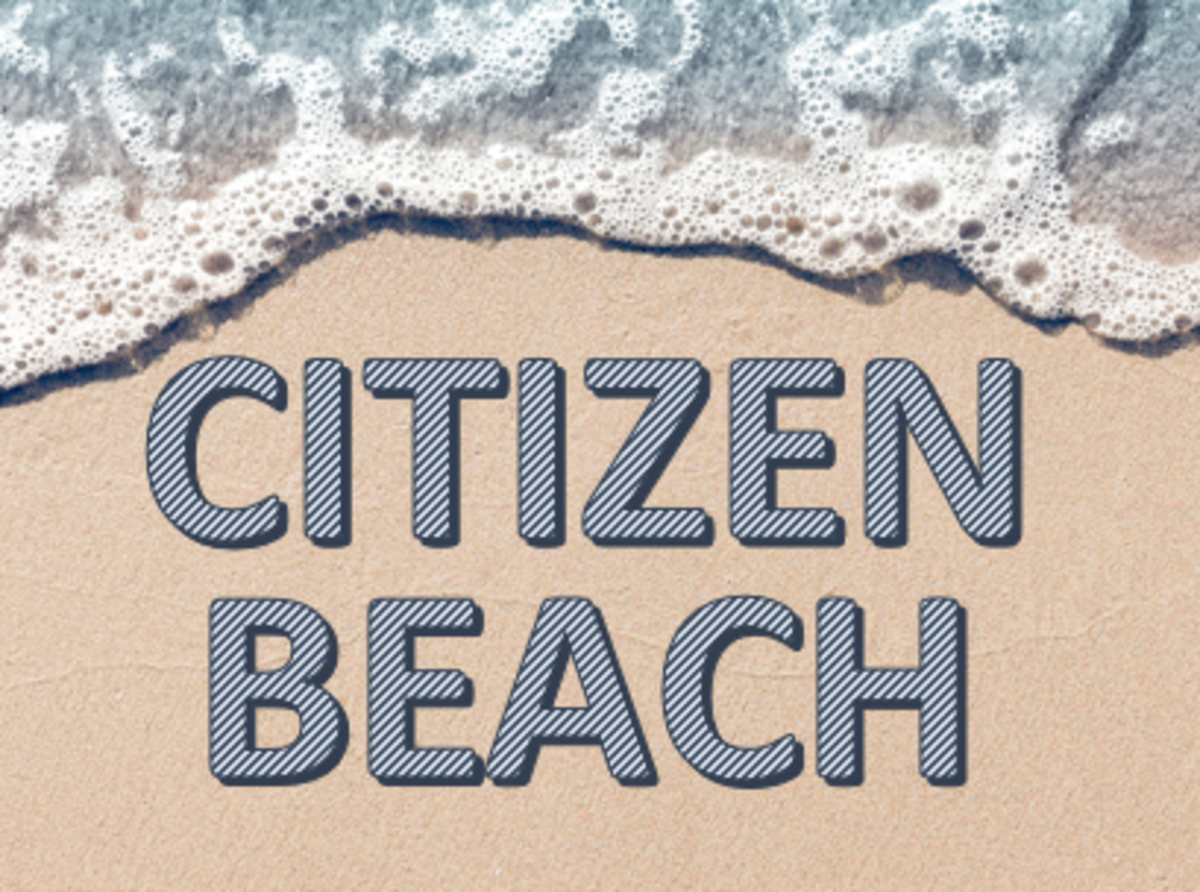Good morning! Welcome to Citizen Beach, the free local newsletter that captures the best news and stories in the Gulf Beaches of Pinellas County.
What’s NEW this week: It’s been two months since I started publishing Citizen Beach as a weekly newsletter. The response has been fantastic, but the workload (in addition to my full-time job, family responsibilities, and other activities) not so much. So, for the foreseeable future, I will publish monthly! This week, we’ll have just one article as we change gears a bit.
Micro-Mobility on the Beaches: Sand, Sun and…SPEED!

Seagull with a broken wing, Treasure Island, September 8
Why Micro-Mobility Devices Are Beach Disruptors
Ever seen a seagull frantically trying to avoid a collision with an e-scooter? It's not a scene from a comedy movie; it's a real-life problem on Treasure Island.
Micro-mobility devices like e-scooters, e-bikes, and hoverboards are all the rage. But they're not so cool when they zoom around our sandy shores. In Treasure Island and St. Pete Beach, these devices are banned from the beach for a reason: they're a danger to both wildlife and people – especially young children who may be playing or running around and not expecting a vehicle traveling 20+ miles an hour on the beach.
How Fast is That? To better understand how fast 20 mph is, you can travel 1,760 feet or about 586.67 yards in one minute when driving at 20 mph. That distance is almost the length of five football fields laid end-to-end.
Birds of a Feather Flock Together (But Not on the Beach)
Beaches aren't just for sunbathing; they're also nesting grounds for many shorebirds. These feathered friends build their nests in the sand and are sensitive to noise and vibrations. When an e-scooter or e-bike comes barreling through, it's like a tornado to a bird's nest. Eggs get crushed, chicks get scattered, and parents go into panic mode.
Even when not nesting, shorebirds and seabirds use the beach as important habitat for resting and foraging. Learn more ways to share the shore and help beach-nesting birds at MyFWC.com/Shorebirds.

Sometimes, sadly, birds get run over – like what happened in Indian Shores in July (see picture above). Or, more recently and closer to home, someone on a motorized skateboard sped through a flock of seagulls on Treasure Island and broke a seagull’s wing (see picture at the beginning of the article). That seabird was taken to Blue Pearl Veterinary Hospital but, unfortunately, did not survive.
Kids and Beaches: A Match Made in Heaven (Unless There Are E-Scooters)
Imagine kids playing on the beach, building sandcastles, and having a blast. Now picture an e-scooter zooming through the sand, oblivious to the little ones. It's a recipe for disaster. Collisions happen, injuries occur, and it's just not cool.
Treasure Island: A Haven for Humans and Wildlife
Treasure Island and St. Pete Beach have a simple rule: no micro-mobility devices on the beach to keep everyone safe. It's like a traffic law but for birds and kids. Let's keep our beaches a safe and enjoyable place for everyone, including the feathered friends.
In Treasure Island: Micromobility devices are prohibited from operating on the beach. Micromobility devices are permitted to operate on the Beach Trail (the cement boardwalk) at a speed of no more than 10 mph.
Alternatives to Beach Fun
Want to ride your e-scooter or e-bike? That's great! But please stick to designated paths and streets. Let's respect the rules and keep our beaches safe for everyone.
Also, of course, standard, non-motorized bikes on the beach are great! They travel much more slowly and are more easily stopped in case a bird or a child is in the path.
So, the next time you need speed, remember beaches are for sunbathing, sandcastles, and seagulls. Leave the e-scooters and e-bikes at home. Let's keep Treasure Island a safe and beautiful place for all.
More Information
If you see an injured bird on the beach, here’s what to do: call the Seaside Seabird Sanctuary at (727) 391-6211, or the SPCA at (727) 586-3591. Also, Blue Pearl Veterinary Hospital is open 24/7 and will accept injured wildlife at no cost to you. The phone number is (727) 572-0132.
Learn more about helping our shorebirds. Visit Save Coastal Wildlife, non-profit wildlife preservation organization that began in 2018 in St. Pete Beach. You can also get involved with the Audubon Society’s Coastal Bird Stewardship program.
If you see an e-rider on the beach in Treasure Island, let the TI police know by calling the non-emergency number (727) 547-4595). In St. Pete Beach, you can report it to the Pinellas County Sheriff’s Office (727-582-6200).
The FWC takes wildlife violations very seriously and encourages the public to report them by downloading the FWC Wildlife Alert app, texting 847411 (Tip411) with keyword “FWC” and information about the violation, calling the FWC’s Wildlife Alert Hotline at 888-404-FWCC (888-404-3922) or submitting a tip online at MyFWC.com/WildlifeAlert.
Was this email forwarded to you? Subscribe here: citizenbeach.beehiiv.com. Your feedback, comments, and opinions are important! Just reply to this email and let me know what’s on your mind!
Thank you!
Thank you for reading! Please send your comments, questions, and article ideas to [email protected]
